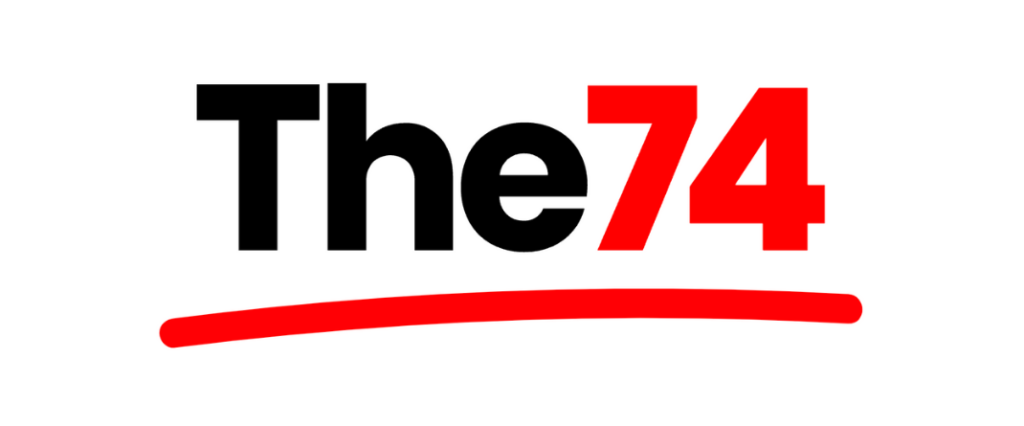Oct 2017
The Economics of Scale-Up
National Bureau of Economic Research paper on a significant challenge in social program implementation – the dilemma of scaling up.
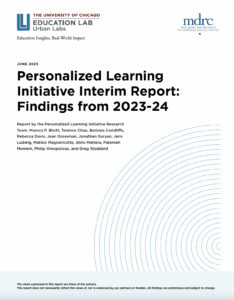
Personalized Learning Initiative Interim Report: Findings from 2023-24
The latest report by the PLI research team shows positive impacts from many types of tutoring–both more and less expensive tutoring models–across the country. These interim findings ought to encourage the field to stay the course in implementing high dosage tutoring, while improving dosage to yield greater learning gains for students.
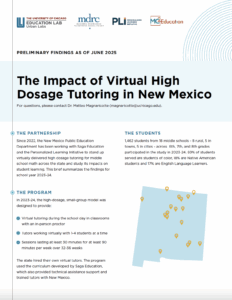
The Impact of Virtual High Dosage Tutoring in New Mexico
Since 2022, the New Mexico Public Education Department has been working with Saga Education and the Personalized Learning Initiative to stand up virtually delivered high dosage tutoring for middle school math across the state and study its impacts on student learning. This brief summarizes the findings for school year 2023-24.
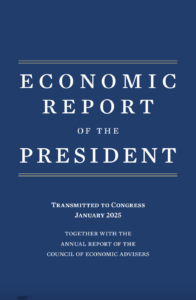
2025 Economic Report of the President
This report cites results from the Education Lab’s study of a high-dosage tutoring model–what we call “Saga Technology”–which found that substituting some tutor time with educational technology can reduce costs by one-third and halve the number of tutors needed without compromising effectiveness.

Briefing for Chicago Public Schools Elected School Board Candidates
The Education Lab hosted a series of briefings for Chicago Public Schools’ elected school board candidates to provide practical tools and show how school board members can effectively use data to shape policy and improve student success.
Latest Updates
Football player-turned math tutor tackles state’s low test scores
The Black Wall Street Times’ Deon Osborne cites Education Lab research from the Personalized Learning Initiative (PLI) which found that students who received high dosage tutoring saw positive gains on end-of-year math test scores.
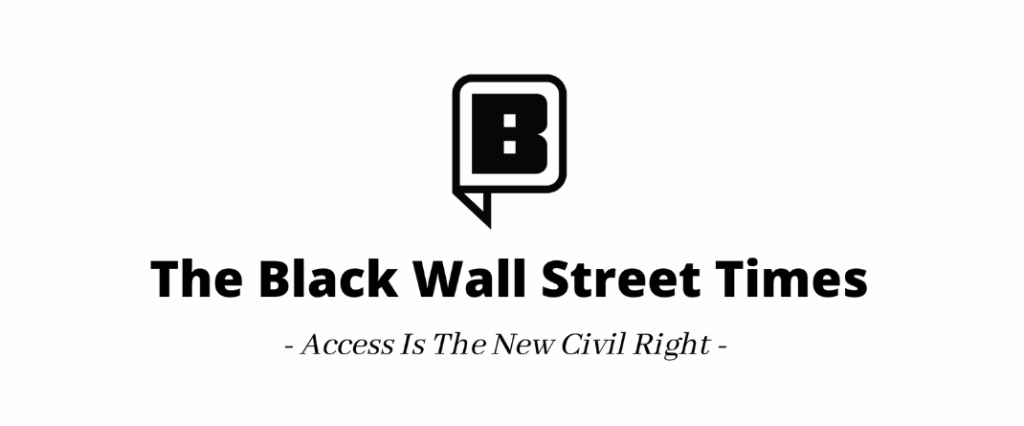
Deep Dive on High-Impact Tutoring
Saga Education published a series that uncovers key strategies for creating lasting educational success, such as effective ways to integrate tutoring into the school day and how ongoing tutor support leads to better student outcomes, featuring insights from Education Lab Senior Research Director Monica Bhatt.
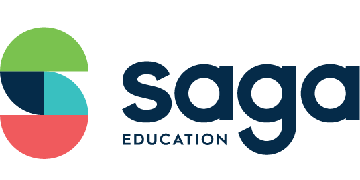
The Case for Doubling Down on Tutoring, a Proven Solution We Can’t Afford to Lose
Accelerate CEO Kevin Huffman and Education Lab executive director Sadie Stockdale Jefferson penned an op-ed that calls for doubling down on investing in tutoring programs as federal aid winds down and academic gaps persist five years after the onset of the COVID-19 pandemic.
